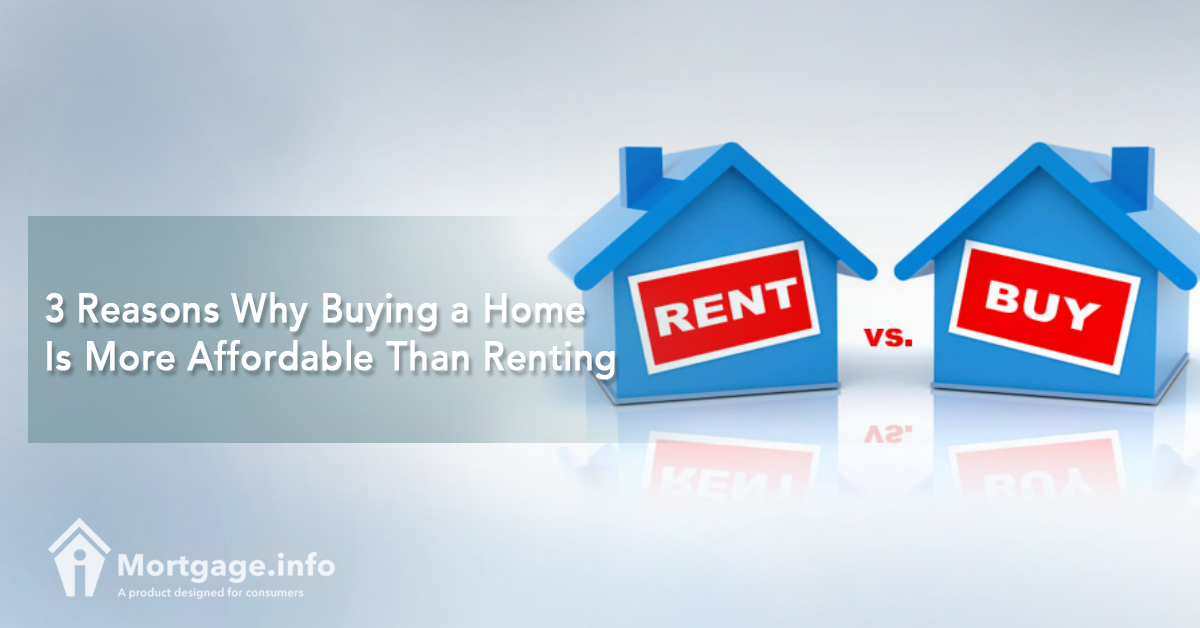The current mortgage rate environment has some consumers iffy about buying a home. Rents, on the other hand, are not increasing but are not expected to fall anytime sooner, either. One angle in the renting and buying debate is sustainability. Is it more costly to keep a home? Do you plan to rent forever? Here’s why buying a home reigns supreme over renting in the long run.
- Equity
- Tax-Wise
- Ownership
Home is where the equity is.
There’s so much you can do with home equity and you can only build equity if you own the home. Your equity can be used to generate cash through a cash-out refinance or a lump sum amount through a home equity loan.
Both can be used to fund major home renovations, medical bills or college costs. You can also tap your equity through a home equity line of credit for contingent expenses.
Your mortgage payments go toward your home, your rent payments to your landlord and for the upkeep of the place. Housing costs rise faster than wages, which makes mortgage payments as affordable as rent.
Mortgage interest rate is tax deductible.
The mortgage interest rate deduction is a tax incentive you’ll earn when you buy a home. According to the IRS Code, the home mortgage rate is tax deductible if you meet these standards:
- You submit a Form 1040 and itemize your deductions on the Form’s Schedule A.
- Your mortgage is a secured debt as defined by IRS on a home qualified per the tax code’s standards in which you have an ownership interest in.
Your home mortgage rate may be a fully deductible interest, depending on the date of the loan closing, the size of the loan, and the use of the loan proceeds.
Renters are not eligible for that tax deduction. Before the President scraps this homebuyer’s benefit, make your decision now.
Your home, your own.
Nothing beats the feeling of owning a home. It’s clearly one of the more important investments you’ll make in your lifetime, which could generate a good return if the timing is right.
True, renting gives you a sense of freedom, not being tied down by keeping a home when life happens. Not owning the home also means not getting anything in return even if you reach deep into your pockets for the rent.
At least with a home, you can finance its acquisition costs. You also have to be responsible for these payments when you take out a mortgage, mainly:
- Down payment: Twenty percent of the home’s purchase price is a good place to start to avoid paying any mortgage insurance. But this number is not realistic for some who are not earning as much or carrying other debts like student loans. There are a number of loan programs that offer down payments as low as 3.5% to 0%. FHA, USDA and VA loans offer such low down payments, respectively and there’s no mortgage insurance for VA and USDA loans.
- Monthly payment: Constituting the principal and interest components of the mortgage as well as the property taxes and homeowner’s insurance, each monthly payment goes toward the loan payoff. You can pay off the loan faster by making extra payments to the loan principal but ask for any prepayment penalty first. You can also refinance your loan to get a lower rate and thus make lower monthly payments.
Basically, you can do anything with your home and are empowered to make changes to your loan with the lender’s approval.

